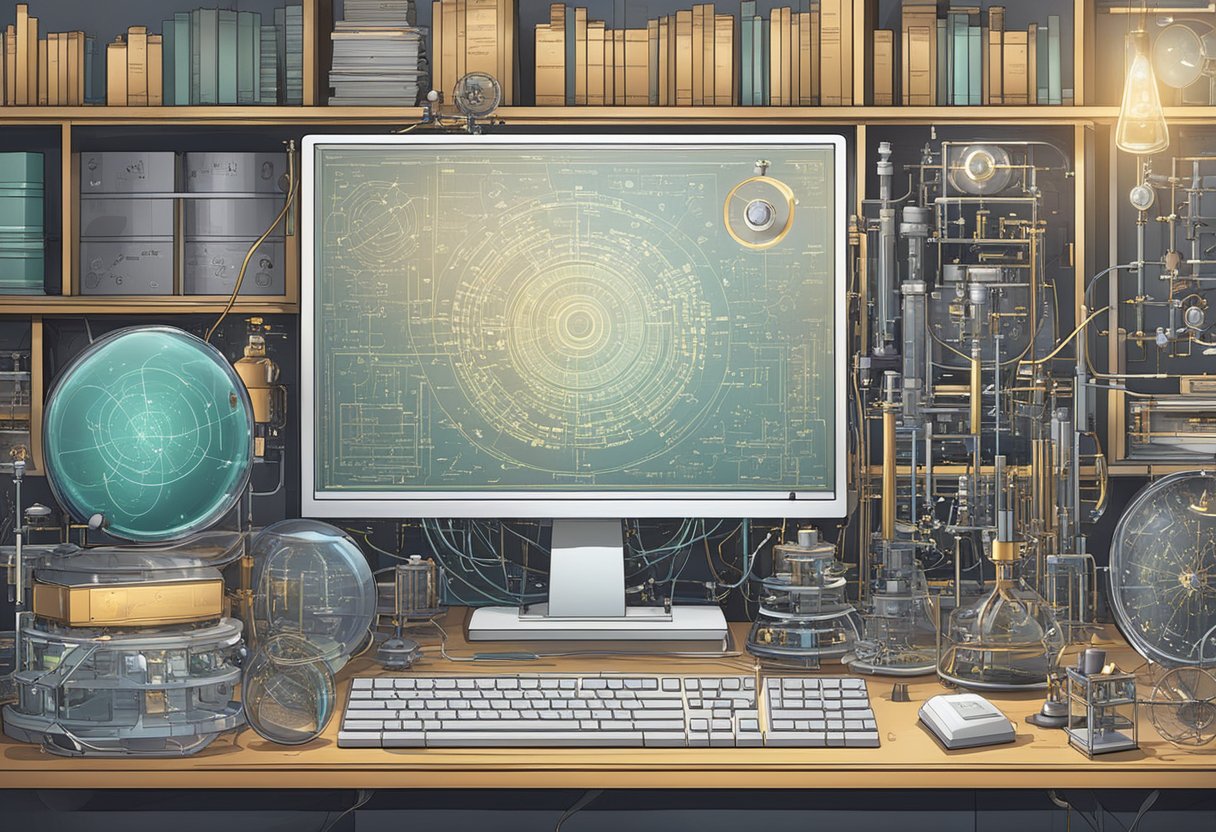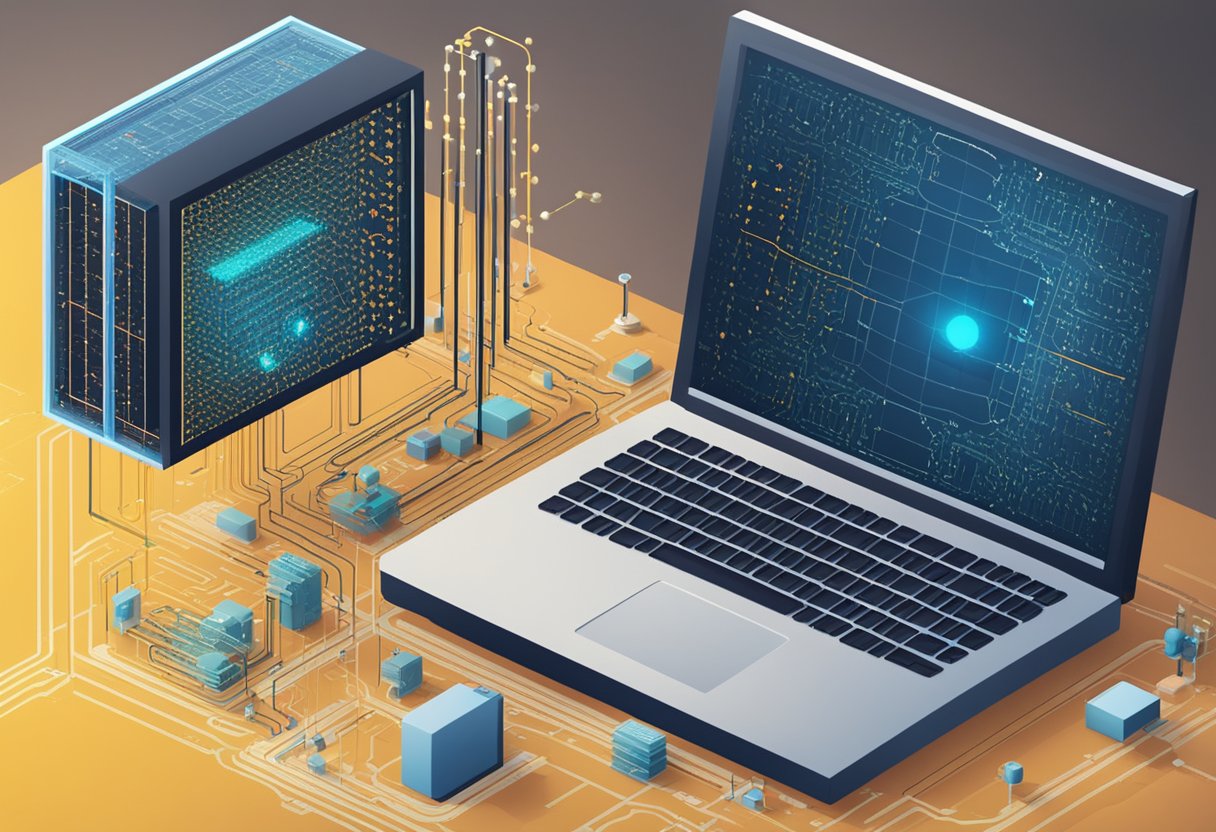Quantum computing is a rapidly advancing field that has the potential to revolutionize modern science. Unlike classical computing, which relies on bits that can be either 0 or 1, quantum computing uses qubits that can exist in multiple states simultaneously.
This allows quantum computers to solve complex problems that are beyond the capabilities of classical computers.
One of the most promising applications of quantum computing is in the field of computational biology. Quantum computers can simulate the behavior of molecules and proteins, allowing scientists to understand the underlying mechanisms of diseases and develop new drugs.
Quantum computing can also be used to optimize complex biological systems, such as ecosystems or metabolic pathways.
Despite its potential, quantum computing faces significant challenges. One of the biggest challenges is developing hardware that can reliably maintain the fragile quantum states of qubits.
Another challenge is developing algorithms that can efficiently solve problems on quantum computers.
Key Takeaways
- Quantum computing has the potential to revolutionize modern science by solving complex problems that are beyond the capabilities of classical computers.
- One of the most promising applications of quantum computing is in the field of computational biology, where it can be used to simulate the behavior of molecules and proteins and optimize complex biological systems.
- Despite its potential, quantum computing faces significant challenges, including developing reliable hardware and efficient algorithms.
Fundamentals of Quantum Computing

Quantum Bits and Superposition
Quantum computing is a new paradigm of computing that is based on the principles of quantum mechanics. In quantum computing, the fundamental unit of information is the quantum bit (qubit), which is a two-state quantum system that can exist in a superposition of states.
Unlike classical bits, which can only exist in one of two states (0 or 1), qubits can exist in a superposition of both states simultaneously.
The concept of superposition is a fundamental principle of quantum mechanics that states that a quantum system can exist in multiple states simultaneously.
In the context of quantum computing, superposition allows qubits to represent multiple values at the same time, which enables quantum computers to perform certain calculations much faster than classical computers.
Entanglement and Quantum States
Entanglement is another fundamental principle of quantum mechanics that is central to quantum computing. Entanglement occurs when two or more qubits become correlated in such a way that the state of one qubit depends on the state of the other qubit, even if they are separated by large distances.
Quantum states are the possible states that a quantum system can exist in. In the context of quantum computing, quantum states represent the possible states of a qubit or a collection of qubits.
Quantum states can be manipulated using quantum gates, which are analogous to the logic gates used in classical computing.
In summary, quantum computing is based on the principles of quantum mechanics, which allow qubits to exist in a superposition of states and become entangled with each other. These properties enable quantum computers to perform certain calculations much faster than classical computers.
Quantum Computing vs Classical Computing

Bits vs Qubits
The fundamental difference between classical computers and quantum computers lies in their basic building blocks. Classical computers use classical bits, which can only have a value of either 0 or 1.
Quantum computers, on the other hand, use quantum bits or qubits, which can represent both 0 and 1 simultaneously, a property known as superposition. This property allows quantum computers to perform certain calculations much faster than classical computers.
Another important property of qubits is entanglement. In classical computers, bits are independent of each other and can be manipulated separately.
In contrast, qubits can be entangled, meaning that the state of one qubit depends on the state of another qubit. This property allows quantum computers to perform certain computations in parallel, which is not possible with classical computers.
Quantum Supremacy
Quantum supremacy is the term used to describe the point at which a quantum computer can perform a calculation that is beyond the capabilities of any classical computer.
This is a significant milestone in the development of quantum computing, and it is the subject of intense research and development efforts.
While quantum computers have the potential to revolutionize many fields, including cryptography, chemistry, and materials science, they are not a replacement for classical computers.
Classical computers will continue to be important for many tasks, such as word processing, web browsing, and data analysis.
Quantum Computing Applications

Quantum computing has the potential to revolutionize many areas of modern science and industry. The following subsections highlight some of the most promising applications of quantum computing today.
Cryptography
Cryptography is an important application of quantum computing. Quantum computers can break many of the currently used cryptographic algorithms, making it possible to decrypt sensitive information.
However, quantum computing can also be used to develop new cryptographic algorithms that are resistant to quantum attacks. This has the potential to significantly enhance the security of communication systems.
Quantum Machine Learning
Quantum machine learning is another promising application of quantum computing. Quantum computers can process large amounts of data much faster than classical computers, making it possible to develop more accurate and efficient machine learning algorithms.
Quantum machine learning has the potential to revolutionize many fields, including finance, healthcare, and transportation.
Quantum Simulation
Quantum simulation is a third important application of quantum computing. Quantum computers can simulate complex quantum systems much faster than classical computers, making it possible to study the behavior of molecules and materials at the quantum level.
This has the potential to significantly accelerate the development of new materials, drugs, and other solutions.
Challenges in Quantum Computing

Error Mitigation
One of the major challenges in quantum computing is dealing with errors that occur during computation. Due to the inherent nature of quantum systems, errors can arise due to decoherence, which is the loss of coherence between quantum states.
This can lead to incorrect results, making it difficult to perform accurate computations.
To mitigate these errors, researchers have developed various techniques such as quantum error correction codes, which can detect and correct errors in quantum states.
Additionally, hardware-based error mitigation techniques such as error-avoiding quantum gates and quantum annealing have been developed to reduce the impact of errors on quantum computations.
Quantum Hardware Design
Another challenge in quantum computing is the design of quantum hardware. Quantum systems are highly sensitive to environmental factors, such as temperature and electromagnetic fields, which can cause decoherence and errors.
Therefore, quantum hardware must be designed to minimize these effects and maintain coherence for as long as possible.
Researchers have developed various hardware designs, such as superconducting qubits and trapped ions, which offer high coherence times and low error rates.
Additionally, advancements in materials science and fabrication techniques have enabled the development of more sophisticated hardware designs, which offer greater scalability and reliability.
Quantum Computing and Modern Science

Quantum computing has the potential to revolutionize modern science by providing insights into complex problems that classical computers cannot solve. The field of quantum computing has seen significant advances in recent years, and researchers are exploring its applications in various scientific fields, including physics, chemistry, materials science, and quantum biology.
Materials Science
Materials science is one of the fields that could benefit significantly from quantum computing. Quantum computers can simulate the behavior of atoms and molecules, allowing researchers to design new materials with specific properties.
Quantum Biology
Another area where quantum computing could make a significant impact is quantum biology.
Quantum mechanics plays a crucial role in many biological processes, such as photosynthesis and protein folding.
Quantum computers can simulate these processes, providing insights into how they work and how they can be manipulated.
Quantum computers can also help in designing new drugs and understanding the behavior of biological molecules.



